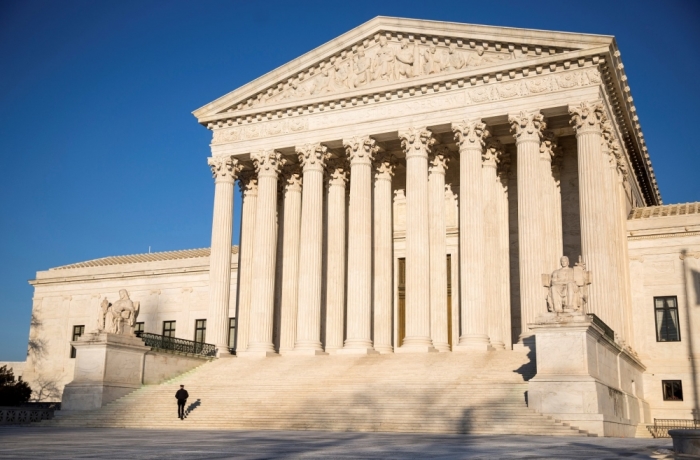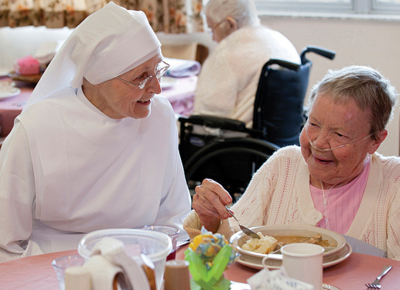Supreme Court Takes Nuns' Case Against HHS Birth Control Mandate

The U.S. Supreme Court has agreed to hear arguments from a group of nuns who want to be exempted from having to indirectly provide birth control and abortion-inducing drugs to employees.
Little Sisters of the Poor will present their case as one of seven cases pertaining to the Department of Health and Human Services' birth control mandate.
In their granting of certiorari on Friday, court opted to consolidate the cases, which include legal challenges by Priests for Life, Geneva College, East Texas Baptist University, and the Roman Catholic Archbishop of Washington.
The Little Sisters are being represented by the Becket Fund for Religious Liberty, a Washington, D.C.-based organization that has overseen dozens of lawsuits against the HHS mandate.

"The Becket Fund is grateful that the Supreme Court has decided to weigh in on this important case," said Mark Rienzi, senior counsel of the Becket Fund, in a statement shared with The Christian Post on Friday.
"The Little Sisters should not have to fight their own government to get an exemption it has already given to thousands of other employers, including Exxon, Pepsi Cola Bottling Company, and Boeing."
In September 2013, the Little Sisters of the Poor filed a suit against the HHS over its controversial "preventive services" mandate.
Although the mandate exempts houses of worship automatically under the "religious employers" category, the Little Sisters did not receive an automatic exemption, but received what the Obama administration refers to as an "accommodation."
Under the accommodation, the Little Sisters are not required to cover birth control in their insurance, but they must certify that they seek the accommodation, which allows employees to get the coverage indirectly.
The Little Sisters say that certification makes them complicit in sinful actions. They further argue that they should receive the same exemption given to churches.
In January, Justice Sonia Sotomayor granted the Little Sisters a temporary injunction protecting them from the demands of the accommodation as their case continued.
Last December, the Tenth Circuit heard oral arguments in the Little Sisters' lawsuit and in July ruled against the nuns.
Mandate supporters, including the Washington, D.C.-based group Americans United for Separation of Church and State, celebrated the Tenth Circuit's decision.
"Many of the employees who work at the Little Sisters' nursing homes are not nuns. We don't know how many of those employees want or need access to contraceptives, but not a single nun is being forced to pay for those medications under the Affordable Care Act," argued Simon Brown of Americans United.
In July, the Little Sisters filed an appeal with the Supreme Court, arguing that HHS "has put them to the impossible choice of either violating the law or violating the faith upon which their lives and ministry are based."
"HHS insists that the Little Sisters must comply with a mandate that their employee healthcare plans 'provide coverage' for free contraceptives," read the appeal.
"Although there is no dispute that the Little Sisters sincerely believe that all the available compliance methods would make them morally complicit in grave sin, HHS refuses to give them the exemption it has given other religious employers, and instead requires them to comply ..."
While past incarnations of the birth control mandate have lost in the courts, the Little Sisters and the cases consolidated with it have struggled to win in the lower courts against the indirect system.




























